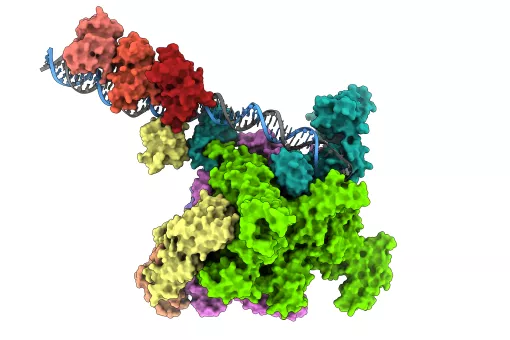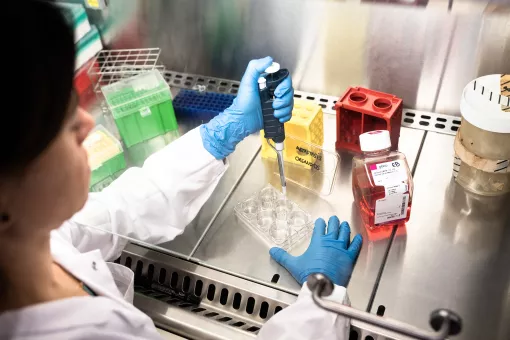Images
The mechanism described by IRB Barcelona researchers played a key role in the evolution from unicellular organisms to more complex forms of life.
The understanding of these processes may have an impact on the treatment of diseases related to extracellular proteins, such as asthma and chronic pulmonary obstructive disease.
The results have been published in the journal Nucleic Acids Research.
All species on earth use almost exactly the same genetic code to produce proteins. And yet many human proteins are very distinct from bacterial ones and these differences contribute to the different properties held by human cells and cells of simpler organisms.
Scientists at IRB Barcelona led by ICREA researcher Dr. Lluís Ribas de Pouplana have identified a tRNA-modifying protein called ADAT as a key player in the production of a group of proteins directed at the extracellular environment. The composition of such proteins is so peculiar that cells require certain functional ‘upgrades’ to produce them, and the main one is revealed in this work.
“Extracellular proteins are essential for cell-cell communication, a central requirement to evolve multicellularity,” explains Dr. Ribas de Pouplana, head of the Gene Translation Laboratory, “it is reasonable to conclude that this RNA modification, which is a prevalent feature of eukaryotic cells, played a role in the emergence of multicellular eukaryotes.”
The project has benefited from collaborations with the groups led by ICREA researcher Dr. Toni Gabaldón (IRB Barcelona), Dr. Eva Novoa (Center for Genomic Regulation), and Dr. Ana Pardo-Saganta (CIMA, Navarra).
The role of extracellular proteins in common human diseases
The correct development of tissue and organism functions requires an equilibrium in the proteins present in the cellular external environment. Mucins, which are produced to protect epithelial tissues in most animals, are a group of extracellular proteins that are dependent on ADAT.
Mucin overexpression is a major factor in several human diseases, including pulmonary conditions like asthma and chronic pulmonary obstructive disease. These findings highlight that any disease that depends upon the function of these proteins may potentially be treated by inhibiting ADAT. Research efforts will continue along these lines in the coming years.
Related article:
Human tRNAs with inosine 34 are essential to efficiently translate eukarya-specific low-complexity proteins
Adrian Gabriel Torres, Marta Rodríguez-Escribà, Marina Marcet-Houben, Helaine Graziele Santos Vieira, Noelia Camacho, Helena Catena, Marina Murillo Recio, Àlbert Rafels-Ybern, Oscar Reina, Francisco Miguel Torres, Ana Pardo-Saganta, Toni Gabaldón, Eva Maria Novoa & Lluís Ribas de Pouplana.
Nucleic Acids Research (2021) DOI: 10.1093/nar/gkab461
About IRB Barcelona
The Institute for Research in Biomedicine (IRB Barcelona) pursues a society free of disease. To this end, it conducts multidisciplinary research of excellence to cure cancer and other diseases linked to ageing. It establishes technology transfer agreements with the pharmaceutical industry and major hospitals to bring research results closer to society, and organises a range of science outreach activities to engage the public in an open dialogue. IRB Barcelona is an international centre that hosts 400 researchers and more than 30 nationalities. Recognised as a Severo Ochoa Centre of Excellence since 2011, IRB Barcelona is a CERCA centre and member of the Barcelona Institute of Science and Technology (BIST).















